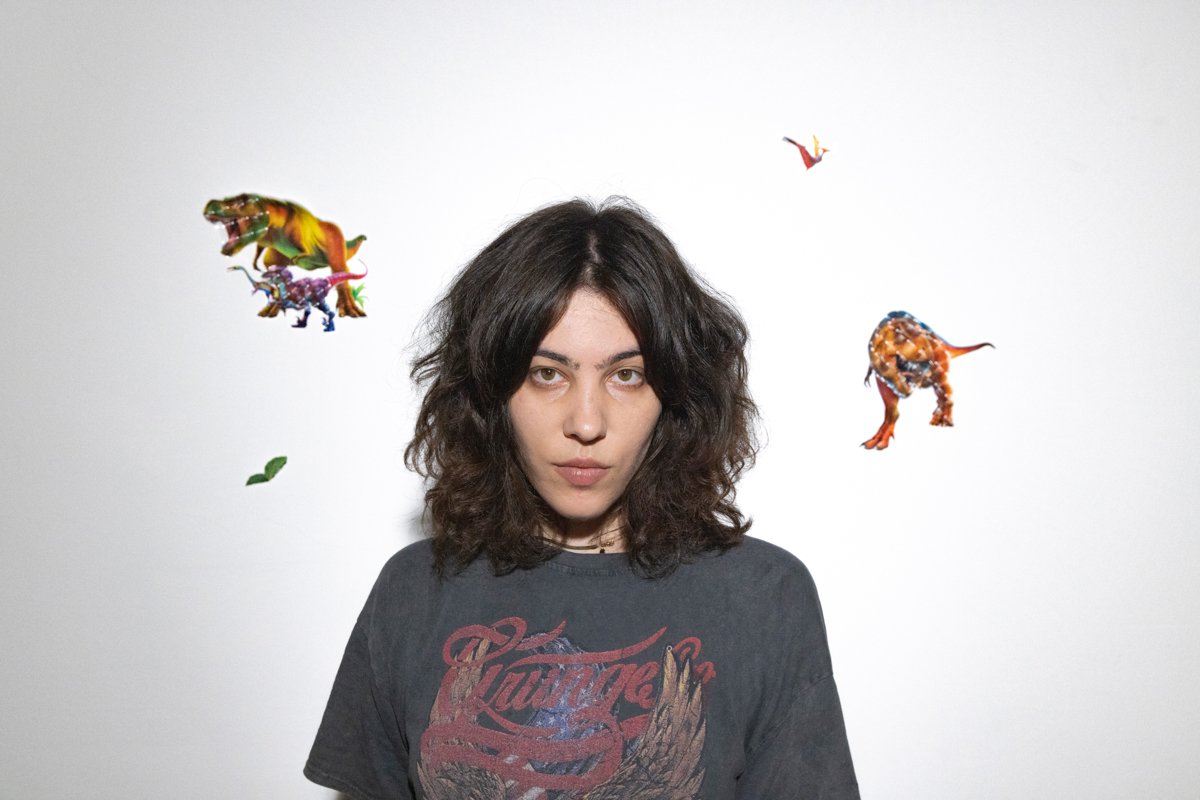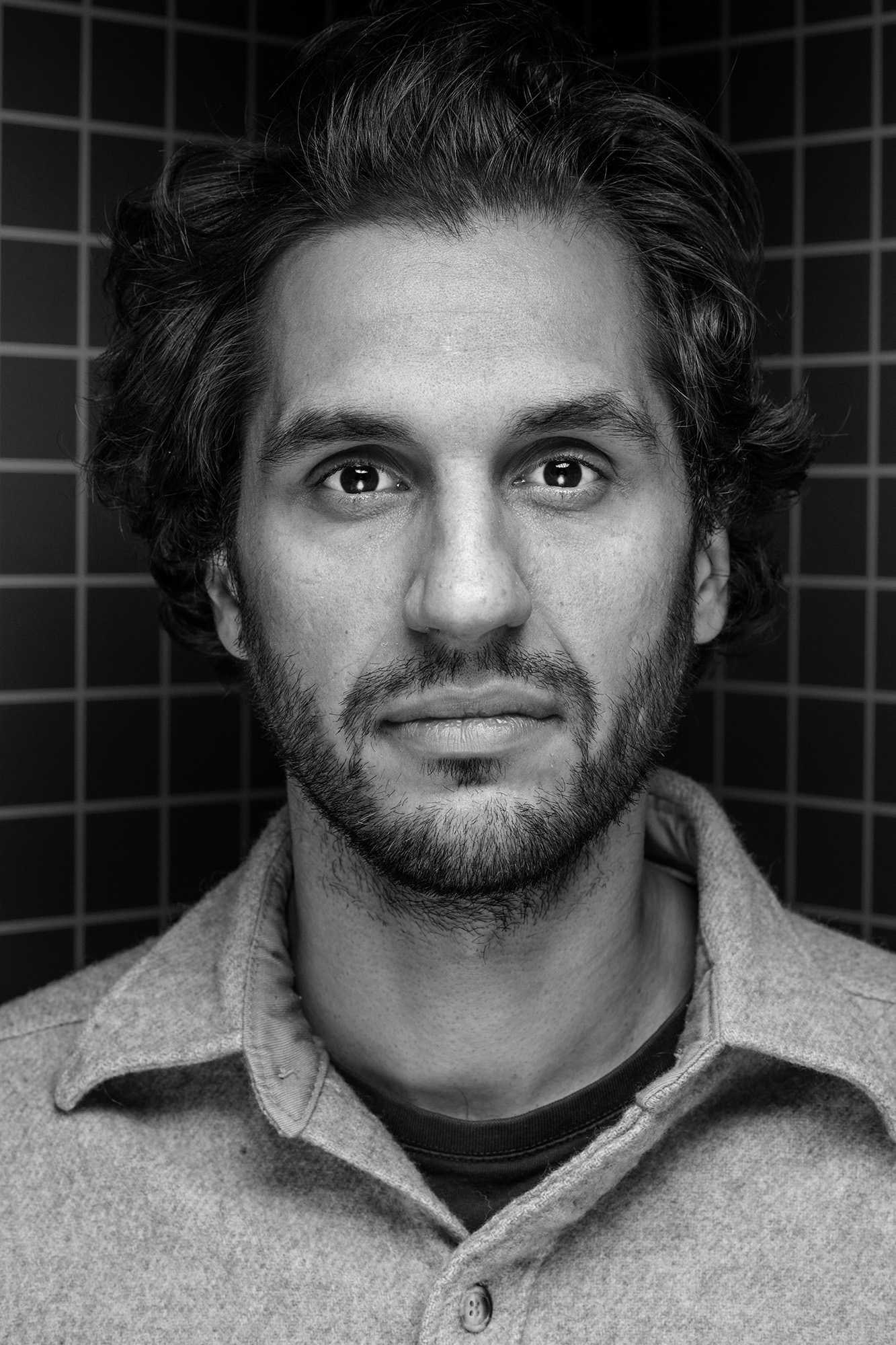




The artists nominated by
For FUTURES 2024, Capa Center has nominated five artists.
In her long-term works, Zsuzsa Darab explores personal themes often combining conceptual and experimental solutions. Deeply engaged with the subject of observation, she presents her questions and experience as a visual story. Often, she takes her own life as a starting point in dealing with the ‘first-life panic’ of her generation and the psychological processes of coming to terms with lived experience.
Balázs Fromm’s projects unfold against the backdrop of Middle and Eastern European countries where democracies are under pressure from the threat of impending war, rising nationalism and migration. He demonstrates an interest in the human condition, which is revealed through a mix of tender portraits and impressions of direct surroundings, resulting in a palette of atmospheric images expressing the challenges of a region faced with an uncertain future.
As an active photojournalist, Noémi Napsugár Melegh is able to step away from the ‘fly on the wall’ role of an impartial author we most often expect from press photography. The atmosphere of trust that she is able to create is palpable in her images, and although she is at the beginning of her photographic career, her images show a freshness of creativity that has the potential to be seeking new experimental paths.
The exceptional characteristics of Róbert Nunkovics’ work were evident from the very beginning of his praxis: he uses the tools of documentary photography to present topics related to his interest in authentic artistic expressions, typically outsider or vernacular and rooted in street art, graffiti culture and everyday life. The focus of his sensitive multimedia projects is usually a remarkable figure or a special place with a little-known story.
Boglárka Zellei combines the spiritual journey with the creative process and her artistic practice is guided by the experience and projection of spiritual processes. With her photographic-based installation works, she invites the viewer into an intense dialogue, drawing attention to fundamental questions of faith, while also bringing to the surface themes of spiritual resilience, as well as notions of judgement and acceptance.
Balázs Fromm (B.1991) is a photographer, currently living and working in Budapest. He studied photography at the Moholy-Nagy University of Art and Design, Budapest, and new media at the CityUniversity of Hong-Kong, Hong-Kong. Fromm's field of work revolves around Eastern European topics, the historic legacy of socialism, the power of masculinity, local issues, and youth culture. His photographic approach involves documenting the disappearing working class of rural Hungary and it's gloomy industrial cities ( A city built of steel 2018-2022), and unveiling the non-conventional beauty norms and the precarious identity of the Z generation. ( East and Eden 2021) Guided by an intuitive sense of connection, Fromm captures the bonds of communities and their environment in the amidst of democratic backsliding, and rising nationalism throughout the region. He works regularly on documentary commissions, shedding light on regional stories for publications as Zeit and Republik, and many others. Balázs Fromm is part of the Studio of Young Photographers of Hungary. He received the Jozsef Pecsi photography grant from the state of Hungary in 2021. Presently, he is working on two ongoing photgraphic series, Casting and Csango Land.


Boglárka Éva Zellei is a photographer and visual artist based in Budapest, Hungary. Her work is concerned with contemporary spirituality in a culture where religion is often misinterpreted and overused. Her aim is to reveal more connections within contemporary culture by exploring deeper desires of a person or communities. For her, the process of creation is also a source of spiritual growth, through processing and pushing her limits, and above all, an important space for dialogue.
Zellei studied Photography at the University of Kaposvár and received her MA in Photography at Moholy-Nagy University of Art and Design Budapest in 2017. In 2016 she studied as a visiting student at Hochschule für Künste Bremen. Besides Hungary, she was represented in exhibitions in Berlin, London, Vienna, Kanazawa, Breda, and Monopoli. Her works were published in several magazines, for example on the cover of HANT Magazine für Fotografie, in The Guardian, Spiegel Online, IMA Magazine (JP) and C41 Magazine (IT).
In 2020 she earned the 3-year scholarship of Hungarian Academy of Fine Art. In 2018 the artist was a New East Photo Prize finalist, a Prix Pictet nominee, and earned the Pécsi József Photography Grant. She won the third prize of Different Worlds competition in 2017.


Noémi Napsugár Melegh was born in 1990 in Budapest, Hungary, and is currently a full-time photojournalist for telex.hu, one of the largest independent news portals in Hungary. Although she has been interested in photography since she was in high school, she worked as a health economist for several years after having obtained her BA and MSc in Economics. During the past two years, she has participated in several international training courses: she was a fellow of the VII Academy Level 1 and Level 2 Documentary Photography Seminar, a participant of the Magnum workshop organised by the Robert Capa Center in Budapest, and a fellow of the Canon Student Development programme and of the prestigious Eddie Adams workshop in Jeffersonville, New York. Her true passion lies in creating long-form documentary projects that focus on personal stories and presenting the lives of local, marginalised communities. In 2023, she won 2nd place in the Documentary Photography (Series) category of the Hungarian Press Photo Contest with her work titled as "Gábor and Kálmán", which tells the story of two men living on the margins of the Roma community. In the same year, she was awarded the Hemző-Károly Prize, a prestigious yearly award for a photographer under 35.


Róbert Nunkovics (1993) examines the relational systems of urban life, exploring naive artistic attempts appearing in public spaces, graffiti, and the acts of their reception through the medium of photography and video. In his own images, he presents urban space as various, freely usable surfaces for artistic creation. He sensitively combines research-based mediums - objects, memories, drawings, or collective photography - with works coming from his own observations, delicately examining the issues of our environment and social groups.


Born in Miskolc in 1989, Zsuzsa Darab graduated from the Moholy-Nagy University of Art and Design Budapest (MOME), in photography BA. In 2012, she obtained a scholarship to study painting and fine art in Denmark. In 2014, she studied at Aalto University School of Arts, Design and Architecture in Finland under the ERASMUS programme. In 2015, she graduated from MOME's photography MA department, then in 2016 from the design and visual arts teaching MA department. Same year, she did her photography internship in Reykjavik, Iceland. From 2017 till 2018, she was working as Jón Páll's photo assistant at SuperStudio. From 2018, she lives in Hungary and works as a destination freelance photographer. She has been a member of the Hungarian Assocation Of Young Art Photographers since 2011, and the Women Photograph database, since 2017. Her works are usually personal, conceptual, staged and also experimental. She has already exhibited several times in Budapest and abroad as well, e.g. New York, Rome, Nizhny Tagil, Luxembourg, Helsinki, Istanbul, Warsaw, etc. In 2013, she participated in the Present Continuous art project at the Mai Manó House. In 2016, she was chosen by Photo Botie as one of the 30 under 30 women photographers. She won the NKA Scholarship in 2018, 2022, 2023 and the Pécsi József Scholarship in 2021.























-Mustela.jpeg)









%2520ret.avif)